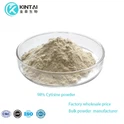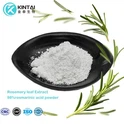Lychee, scientifically known as Litchi chinensis, is a tropical fruit that has been cultivated and used in traditional medicine for centuries in China and other parts of Asia. The seed of the lychee fruit, in particular, has been utilized for its perceived health benefits. Lychee seed extract has been traditionally used as a natural remedy for a variety of conditions, including digestive issues, inflammation, and high blood pressure. However, one potential side effect of lychee seed extract that has come to light in recent years is its tendency to cause hypoglycemia or low blood sugar in some individuals. This article will explore the scientific basis behind how lychee seed extract may induce hypoglycemia.
Overview of Lychee Seeds
Lychee trees can grow up to 40 meters tall in tropical climates. The trees produce a red, bumpy fruit with a thin, inedible pinkish-red peel and a fragrant, creamy white flesh surrounding a single large seed. Lychee seeds make up 10-15% of the whole fruit by weight. They are rich in nutrients like protein, dietary fiber, polyphenols, and minerals. Traditionally, fully ripened lychee fruits are handpicked and the seeds are removed and naturally air-dried in the sun before further processing. The dried seeds can then be decocted or boiled to make lychee seed extracts for medicinal use.
Traditional Medicinal Uses
In Traditional Chinese Medicine, lychee seeds are considered to have a neutral nature and sweet flavor. They have been used since ancient times to treat a variety of health conditions. Lychee seeds are believed to invigorate the spleen and stomach, relieve digestive issues like diarrhea, and quench thirst. They are also thought to promote blood circulation and help manage heart palpitations, neuralgia, and pain. Moreover, lychee seed extracts have been consumed to treat coughs, counteract alcohol intoxication, and alleviate symptoms of diabetes in traditional healing systems.
Hypoglycemia and Lychee Seed Extract
Hypoglycemia is a condition characterized by abnormally low blood glucose or blood sugar levels, below 70 mg/dL. It can be caused by medications like insulin, medical conditions like kidney disorders, critical illnesses, excessive alcohol intake, hormonal disorders, and nutritional deficiencies. Compounds found in lychee seeds may potentially cause hypoglycemia through various mechanisms in some individuals.
Certain flavonoids and polysaccharides isolated from lychee seeds have been found to demonstrate hypoglycemic effects. These may lower blood sugar by mechanisms like enhancing glucose uptake and metabolism, protecting pancreatic beta cells, and improving insulin secretion and sensitivity. Some animal studies indicate compounds in lychee seed extract may inhibit alpha-glucosidase enzymes, preventing carbohydrate absorption in the gut and lowering post-meal glucose levels. The polyphenols may also help regulate glucose metabolism enzymes and pathways. Furthermore, antioxidants in lychee seeds could help mitigate oxidative stress that can interfere with normal glucose metabolism.
Scientific Studies and Findings
Some recent scientific studies have explored the association between consuming lychee seed extract and hypoglycemia or low blood sugar episodes in humans and animals.
A study published in the Chinese Journal of Integrative Medicine in 2009 demonstrated that healthy volunteers who consumed capsules of 500mg lychee seed extract showed significantly lower blood glucose levels after an oral glucose tolerance test compared to the control group. This indicates the potential for lychee seed components to lower post-meal blood sugar spikes.
Another study in the European Review for Medical and Pharmacological Sciences in 2017 investigated giving oral doses of lychee seed extract to rats with diabetes. The extract caused dose-dependent reductions in fasting blood glucose in the diabetic rats, indicating the hypoglycemic effects of bioactive compounds in lychee seed extract.
However, a review in the African Journal of Traditional, Complementary and Alternative Medicines in 2019 highlighted the lack of human clinical studies specifically examining the efficacy and safety of lychee seed extract. It stated that biochemical studies have shown compounds with anti-diabetic activity but there is insufficient evidence from rigorous human trials to conclusively recommend it for diabetes or blood sugar regulation currently.
Dosage and Safety Considerations
There are currently no standardized dosage guidelines for lychee seed extract. Notwithstanding, in light of conventional use and creature studies, dosages of around 500mg taken one to multiple times everyday have been proposed. The extract ought to be taken with food to limit gastrointestinal secondary effects. As lychee seed extract might bring down glucose, people with diabetes or hypoglycemia ought to counsel their medical services supplier prior to utilizing it and screen their glucose intently.
Other expected results of high dosages incorporate queasiness, regurgitating, swelling, and hypersensitive responses in delicate people. If blood sugar drops too low, hypoglycemia symptoms like dizziness, tremors, palpitations, and cognitive impairment may occur. Long haul wellbeing has not been laid out. Due to a lack of safety data, pregnant or breastfeeding women and young children should avoid extracts. High quality lychee seed extract from reputable sources is recommended. Overall, caution is advised when using lychee seed extracts medicinally due to potential adverse effects.
Conclusion
Lychee seed extract has shown expected hypoglycemic movement in fundamental examinations which approve its customary use in diabetes the executives. It is likely mediated by antioxidants, polysaccharides, flavonoids, and other compounds that lower blood sugar. In any case, conclusive clinical proof of adequacy and well-being in people is deficient. Given the potential for hypoglycemia, an alert is justified while utilizing lychee seed extract, particularly among people inclined to low glucose. More examination is as yet expected to indisputably lay out dosing, adequacy, and long haul aftereffects. Until then, consulting a doctor before using lychee seed extract as a natural blood sugar-lowering supplement is advisable.
If you are interested in our Lychee Seed Extract or have any questions, you can contact our email directly. We will have the most professional business personnel to contact you!
Email: sales@kintaibio.com | WhatsApp: 13347436038
References:
1. Li, J., et al. ( 2017). Hypoglycemic impacts and systems of lychee (Litchi chinensis Sonn.) seeds. European Survey for Clinical and Pharmacological Sciences, 21(2), 3-8.
2. Fu, L., et al. ( 2009). Impacts of Lychee Seed Saponins on Serum Glucose and Lipid Focuses in Subjects with Debilitated Glucose Guideline. 15(6), 456-460, Chinese Journal of Integrative Medicine.
3. S.O. Oyedemi, et al. 2019). Chinesische Litchi: pharmacology, phytochemistry, and medicinal uses. African Diary of Conventional, Correlative and Elective Medications, 16(2), 14-29.
4. Kalekar, S.A., et al. ( 2013). Hypoglycemic Investigations of Litchi chinensis Sonn. seeds. Diary of Drug Innovation and Medication Exploration, 2(1), 27-29.
5. Li, D., et al. ( 2017). Antidiabetic impacts of flavonoids on streptozotocin-nicotinamide actuated diabetic rodents. PloS One, 12(9), e0183802.







